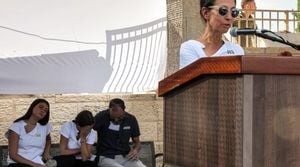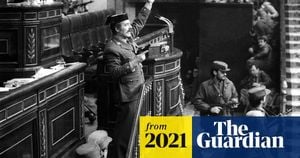Concerns are rising over the health of Pope Francis, who is currently hospitalized with severe bilateral pneumonia. At 88 years old, reports state he is experiencing serious health complications, prompting speculation about his potential successors. Among the candidates who have emerged are two prominent Mexican cardinals: Carlos Aguiar Retes, the Archbishop of Mexico, and Francisco Robles Ortega, the Archbishop of Guadalajara. Both cardinals, at the age of 75, are part of discussions surrounding the future of the papacy as Vatican officials evaluate potential successors due to the Pope's declining health.
This discourse around successors is not unexpected, especially since Pope Francis signed his resignation letter some years ago, expressing readiness to step down if he could no longer fulfill papal duties. According to Roberto Velázquez Nieto, a Vatican researcher, there are currently 252 members of the College of Cardinals, but only 138 of these cardinals are eligible to vote or be voted for due to age restrictions.
"De los actuales 252 miembros del Colegio Cardenalicio, solamente 138 cardenales pueden votar y ser votados, ya que tienen menos de 80 años de edad, por lo que son considerados papables por el derecho canónico," noted Velázquez Nieto. The fact remains, the Cardinals of Mexico, both of whom are not currently listed among the top suggestions for the papacy, have strong credentials and backgrounds.
Historically, each papal conclave has its surprises. Velázquez Nieto elaborated: "No debemos descartar a ninguno. Cualquiera puede sacarse la rifa del tigre." This sentiment serves as a reminder of how previous candidates considered unlikely have ascended to the papal throne.
Carlos Aguiar Retes was born on January 9, 1950, and ordained as priest in 1973. His career includes stints as Bishop of Texcoco and being appointed by Pope Francis as the Archbishop of Mexico City. He has served as President of the Mexican Episcopate and has held various committees within the Vatican, demonstrating his established role within the Catholic hierarchy.
Robles Ortega, born on March 2, 1949, is noted for his past service as Archbishop of Monterrey before his current role as Archbishop of Guadalajara. He has also been President of the Mexican Episcopate and is recognized for fostering traditional values within the Church. These achievements, alongside their respective administrative roles, position them well within the internal discussions about potential successors.
The weight of their potential papacy is not to be underestimated. Both have historical roots as representatives of one of the largest Catholic populations globally, as Mexico, alongside Brazil, boasts the largest number of Catholics in Latin America. Their standing taps directly to the Vatican's interests, particularly due to the widespread Guadalupe devotion which holds significant influence and financial resources for the Vatican.
Despite being overlooked by Vatican commentators who maintain lists of favorites, such as Luis Antonio Tagle from the Philippines, Aguiar Retes and Robles Ortega's candidacies could reflect larger demographics and geopolitical dynamics present today. Velázquez Nieto's assertion highlights this when he states: "Siempre hay sorpresas en las elecciones papales realizadas por el Colegio Cardenalicio."
The papacy is facing uncertainty and prospective changes, not solely due to ill health but also considering wider global contexts and Catholicism's evolution. Every indication from individuals like Velázquez Nieto suggests vigilance is necessary as the soft conversations of today may turn to realities tomorrow. The eventual decision will speak volumes about the Catholic Church's direction, where traditional values meet the progressive aspirations of faith communities worldwide.
While the discussions surrounding the next pope remain fluid, the contributions of cardinals like Carlos Aguiar Retes and Francisco Robles Ortega must be closely considered. Their legacies within the Church could forge pathways leading to decisions not just affecting their careers, but the very essence of the Church moving forward.



